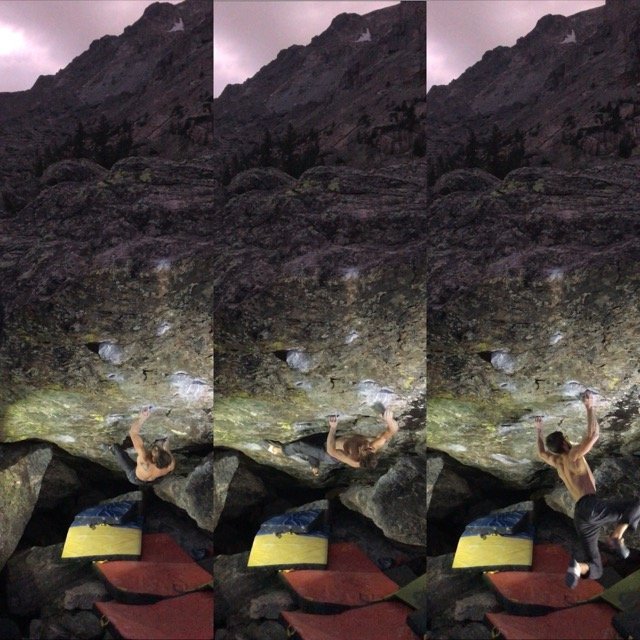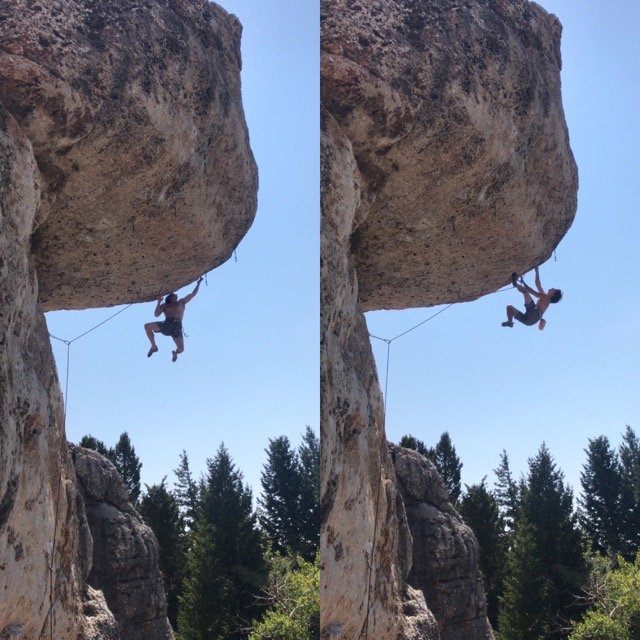Start Here:

It’s fair to say that most climbers would improve if they followed three rules:
Try harder.
Find the best climber near you or someone who is progressing quickly. Watch them when they try something near their limit. That is the level of effort you want to have when you climb.
Stay healthy.
End your climbing session before you get exhausted. Drink water. If a move hurts, stop trying it. Develop well-rounded hand strength rather than relying on only one or two grip positions. Do some opposition work.
This doesn't have to take up a lot of time. A little work done consistently goes a long way. You're just looking for the minimum effective dose.
When you’re not trying harder, move better.
We can’t physically try hard every minute of every session. Ideally, we should all be warming up and cooling down at some point. When you aren’t trying to rip holds off the wall, put all of your focus into how you move.
If you only know how to climb using momentum, climb slowly. It requires more tension to move slowly, and gives you more time to feel how you move through space. If you want to be able to do bigger moves, practice driving through your legs and your pulling arm during every move. You want to be comfortable using higher feet? Climb some of your warmups by only hand-foot matching.
Kurt Vonnegut said, “We are what we pretend to be.” Pretend to be a good climber.

Long-time friends Nate and Ravioli Biceps discuss lessons they’ve pulled from video gaming that can help inform our climbing.
I never thought I’d be recommending this, but some of y’all should be putting less effort into becoming technically better climbers.
Do you really have terrible willpower? Or are you surrounded by distractions and obstacles?
Giving artificially low grades to climbs increases their perceived value for our training and development. The more something is mis-graded the more we naturally want to prioritize it.
Discussion around grades can be so polarizing that many of us avoid the topic.
Climbing starts off as this self-feeding cycle that has you wishing you could climb seven days a week. What happens when this cycle stops bringing improvement though?
Use strength to leverage every other aspect of your climbing, not replace them.
If everything you do is a finger workout, then when do your hands get a chance to recover?
There is a common theme between a grilled cheese sandwich and good training advice.
The more accurately we define our problems, the more approachable it will feel to find solutions.
Maybe the most understated way of getting better is to build fallback successes into your plan.
How much time should climbers spend becoming more well rounded vs. improving their strengths?
As cool as assessments and standards are, they can easily leave people settling for “good enough” when they have the potential to do much more.
Being able to quickly recognize familiar sequences is a crucial ingredient to harder climbing.
It’s far more comfortable for us to blame ignorance for our lack of progress than it is to blame our own efforts.
Once you learn the power of good tactics it can be hard to step away from them.
Of all the people that I spoke with this year who were stuck in plateaus, many of them had the same thing in common: they climbed and trained alone.
The belief that you are getting better at climbing is one of the most important ingredients in actually getting better at climbing.
How many times have you gone up a route and felt overwhelmed, only to look back and realize that it’s not as intimidating as it initially seemed?
Most of us go into a training plan or an outdoor season with an expectation, but expecting results can make us brittle when problems arise.
Whenever there is a training article online or some tidbit of knowledge on social media, it’s important that you consider the context.
At a certain stage in climbing, the hand and foot beta you use stops being the deciding factor in whether or not you are successful.
The intermediate climber’s problem with perception starts to arise when they can’t recall all of the solutions they have attempted during the problem solving process.






























Inspiration is intoxicating, but often fades as quickly as it shows up.